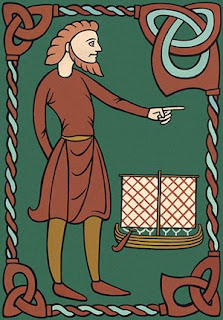Time to say NO
Today is Okhi day, a public holiday in Greece to commemorate Greek dictator Ioannis Metaxas's rejection of the ultimatum made by Italian dictator Mussolini on October 28, 1940. The ultimatum was presented to him at dawn after a party in the German embassy (Fascists are nothing if not theatrical) demanding that Axis troops be allowed to enter Greek territory. The answer, allegedly, was the single word "no". In response to the Greek's not agreeing to their plans, Italian troops attacked the Greek border at 5.30am. See what happens when you don't invite all the dictators to your party. On the morning of October 28th the Greek population took to the streets shouting 'okhi'. The day was officially named Okhi Day in 1942. I like the idea of a day to say no for two reasons. There's so much happening that we should be standing up and shouting NO about. And saying no is not always very easy. My totally unrealistic work schedule is proof of that. But there are s

